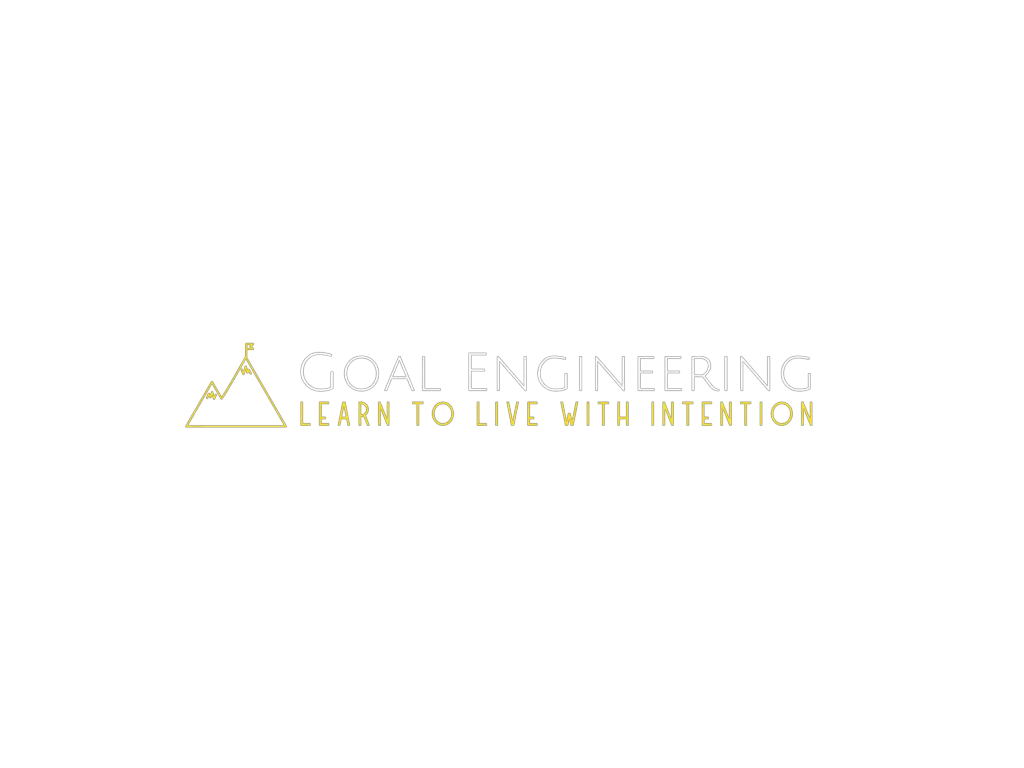You want to improve your life so you set a lot of goals. You’re trying to go running three times a week, eat healthier, spend more time with your kids, and read more. But what’s the purpose? What’s the end goal you’re after, and how do you find it?
An end goal is the outcome that you hope to accomplish with the actions you’re taking. Those action steps are also known as means goals. To find your end goals, ask yourself why you want to accomplish each goal you have and create a vision of where you want to be in five years.
Without an end goal, you don’t have direction or purpose. Running a certain number of times a week may sound exciting at first, but eventually, it gets boring. What’s actually motivating you is the change you want from it.
What if you could get clear on that final outcome you seek?
How would it feel to know that every little action you take is getting you somewhere amazing?
You don’t want to just run for the sake of it. You seek a result like losing weight, becoming healthy, improving your stamina, or training for a race.
But most of the time you don’t intentionally define that final outcome, which makes your daily action steps have no purpose.
This is just one reason why you want to give up on your goals in the middle of January. Having an end goal makes it easier to stick with your goals and change your life, and I’m going to show you how you can find yours today.
How to Find Your End Goals
“Begin with the end in mind.”
One of my favorite ways to find my end goals is known as the seven levels of why exercise. To use it, all you have to do is ask yourself “why do I want that?” seven times.
So you start with wanting to run three times a week, but why do you want to do that?
You might answer that you want to be healthy, but why?
At this level you have to start thinking a little harder. Maybe you eventually discover that you want to be healthy so you can spend quality time with your spouse and kids. But we can go deeper. Why do you want that?
With the soul-searching that this exercise is making you do, you might discover that your family is more important than anything else and you want to do everything you can for them. You start realizing that everything you do, from work to fitness, is only to take care of them. It becomes clear that spending time with them makes you happy.
Armed with this powerful self-awareness, it’s way easier to stick to your morning run because you know that it will help you take care of your family, spend more time with them, and ultimately, become happier.
See how powerful that is? I didn’t even go all seven levels in and already you’re connecting your daily actions with feelings that inspire and motivate you!
Where Will You Be in 5 Years?
Another way you can establish your end goals is by asking yourself where you want to be in five years.
I learned this from Pat Flynn, who says to imagine that five years from now your life is exactly what you want it to be in every way.
You bump into an old friend at the airport who asks how you are and you enthusiastically respond with “life is fantastic!”
Why do you respond that way?
Write down how you’re doing in your faith, family, finances, fitness, and fun. I did this a few years ago and wrote it all out on one piece of paper, hung it up where I can see it every day, and it still inspires the heck out of me.
These are your end goals, and now all you need to do to get there is work backward to figure out the daily, weekly, and quarterly action steps that will get you there.
This activity also shows why means goals are still crucial for your success. They establish the path you’ll take to get to your end goals. Without that path, you have no way to get to the results you want.
This is also why it’s confusing when you hear that you should set SMART goals because a means goal can be SMART, but end goals can’t. End goals are bigger aspirations, which makes it hard to make them specific, measurable, attainable, realistic, and time-bound.
To recap: your end goal should be your vision of what you want to accomplish or where you want to go in life. Your means goals should be the specific plans you’ll take to get there.
Let’s take a look at a few examples to understand this better.
Examples of End Goals
There are four areas of life to break your goals down into:
- Faith
- Family
- Finances
- Fitness
And sometimes a fifth area of fun, although I usually just make sure I have fun in all four of the first ares!
In every one of these four pillars of life, you need to have an end goal if you want to stay inspired and motivated to keep up with your daily actions.
I divide my end goals within each of these areas into two parts:
- Vision, which is the more concrete results I want to accomplish on a quarterly or yearly basis. You can get this by asking where you want to be in five years.
- Identity, which describes the transformation I want to have and the type of person I want to become. This comes from the seven levels of why exercise.
So for my family goal, I have two end goals, the first being my vision, and the second is my desired identity:
- I am in the habit of spending quality time with my kids daily.
- I am a good husband and father and best friends with each family member.
In my financial end goals, I have a few different ones. Here are my vision and identity in just one area:
- I make $8,500 a month from blogging.
- I am a hard worker, highly-skilled writer, and SEO expert.
And when it comes to fitness, my two end goals are:
- I weigh less than 175 pounds through mindful eating, Ring Fit, and walks.
- I am athletic, energetic, fast, and strong.
The power in breaking down end goals into these two categories is that it brings out both the short-term and long-term desires you have to improve. It doubles the amount of motivation that you can get from establishing end goals.
Let’s Wrap This Up
To summarize, end goals are the outcomes that you hope to achieve by the work you do each day. You need to have them because they will motivate and inspire you to work hard so you can reach new heights.
To find your end goals, first, ask yourself “why do I want this?” seven times for each goal you have. This will help you identify the kind of person you want to have, which establishes an identity end goal.
Next, create a super-specific vision of your perfect life five years from now. This exercise shows you the details of what you want in the end.
Take the time to really get clear on what you want and what those daily action steps are leading to. You’ll soon find all the motivation you need to stick to your goals even when they get boring.
And by doing that you’ll gain the power to accomplish anything you want to in life.





